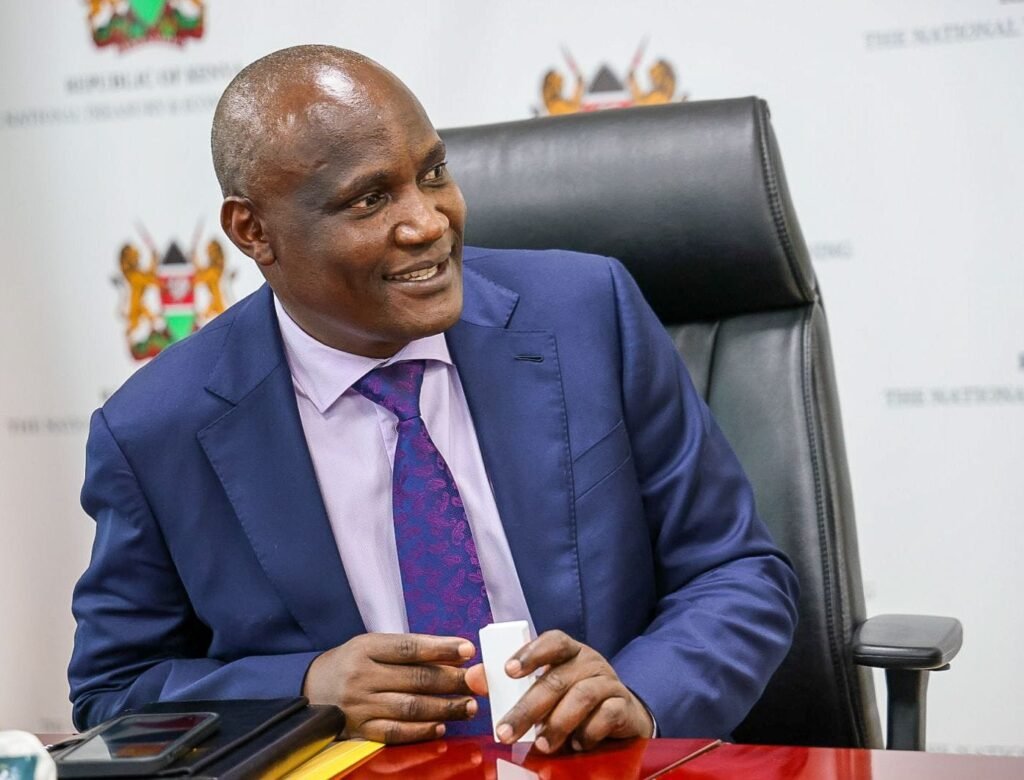As Treasury Cabinet Secretary John Mbadi read the Sh4.24 trillion budget speech to a barely full National Assembly on the afternoon of 12 June, most Kenyans and various stakeholders were certain the government would not introduce new taxes, as has often been the case.
Mr Mbadi, the second CS to head the Treasury during a period marked by rampant wastage, corruption, pilferage, and ballooning public debt, also addressed concerns around over-taxation, the rising cost of living, economic stabilisation, and the need to support struggling businesses.
According to a recent analysis by audit, advisory and tax firm PwC, Mr Mbadi’s budget speech—delivered amid protests over the police killing of a teacher and blogger—confirmed that Kenya’s economy demonstrated notable resilience.
The country recorded an average growth rate of 5.2 per cent between 2023 and 2024, outperforming both the global average (3.3 per cent) and sub-Saharan Africa (3.8 per cent).
“We note from the budget speech that the government aims to seal revenue loopholes and enhance tax system efficiency by tightening the application of VAT exemptions and zero-rating,” said PwC.
Kenya’s economy grew by 4.7 per cent in the last financial year. For the 2025/26 financial year, growth is projected to remain strong at 5.3 per cent, driven by a stable macroeconomic environment, prudent fiscal and monetary policies, and ongoing structural reforms.
Inflation dropped to 3.8 per cent in May 2025, while the exchange rate stabilised. Foreign exchange reserves reached their highest levels in recent years, providing a strong buffer against external shocks.
However, a section of experts and critics are sceptical, with some claiming the budget reading exercise has become “meaningless.” Economic analyst and business development consultant Ephraim Njega remarked: “The big numbers and even bigger words ring hollow in the ears of most Kenyans.”
“A budget that proposes borrowing when the country has already exhausted its borrowing capacity isn’t worth the paper it is written on. It is an illegal document, and its authors are potential criminals,” he added.
Mr Mbadi’s speech also confirmed that the Kenya Kwanza administration will fast-track the finalisation of the National Policy on Digital Finance to support reforms and modernise the national payment system.
This policy is expected to inform amendments to the National Payment System Act (Cap. 491A) and related Central Bank of Kenya (CBK) regulations.
- Kenyans brace for austerity as health and education face deep cuts
- Kenya in fresh IMF talks amid fears of return to austerity
- Health budget falls short as donor exit sparks national crisis
In parallel, the CBK is undertaking a comprehensive review of the legal and regulatory framework governing the national payment system. This review suggests forthcoming subsidiary legislation to support interoperability, round-the-clock settlement, and consumer protection in digital transactions.
Legal clarity will be vital to ensure alignment with data protection, anti-money laundering, and financial consumer rights frameworks. These reforms aim to modernise Kenya’s digital finance infrastructure, enhance transaction efficiency, and promote broader financial inclusion.
Recurrent Expenditure and County Transfers
Treasury projects Sh3.134 trillion in recurrent expenditure and Sh693.2 billion in development spending. Mr Mbadi also outlined the government’s plan to fix rising public debt and pending bills, seal revenue loopholes, and enhance tax system efficiency.
He reiterated the government’s commitment to strengthening domestic resource mobilisation while easing the tax burden. Mr Mbadi affirmed: “Kenyans cannot bear more tax.”
Treasury has proposed an equitable share allocation of Sh405.07 billion to county governments, representing 25.79 per cent of the last audited and approved national revenue (Sh1.57 trillion for FY 2020/21), in line with Article 203(3) of the Constitution. This is an increase of Sh17.6 billion from the previous year.
Counties will also receive Sh69.8 billion in conditional and unconditional additional allocations, bringing total proposed transfers to Sh474.87 billion. While this increase supports devolution, delayed disbursements have adversely affected service delivery. The National Treasury must implement mechanisms to reverse this trend.
Pending Bills and Fiscal Discipline
As of 30 June 2024, county governments reported pending bills amounting to Sh181.98 billion—an increase of Sh17.22 billion from the previous period. These unpaid obligations undermine fiscal discipline, service delivery, and the growth of local enterprises.
To address this persistent challenge, counties should institutionalise robust commitment control systems. The Controller of Budget should intensify expenditure oversight to ensure compliance with approved allocations. Additionally, the adoption of accrual-based accounting should be accelerated to enhance transparency in liability reporting.
Revenue Performance and Digitisation
Own Source Revenue (OSR) collection increased by Sh2.8 billion—a 5 per cent rise from Sh56.1 billion in FY 2022/23 to Sh58.9 billion in FY 2023/24. Ten counties exceeded their annual OSR targets, indicating improved revenue mobilisation and administrative capacity.
Counties that invested in automation and revenue administration reforms demonstrated better OSR performance. PwC recommends full automation of revenue systems and the adoption of scientific forecasting tools to improve accuracy, efficiency, and accountability.
For the first time, the Finance Bill 2025 focuses on administrative reforms and rationalisation of tax expenditures. However, it remains to be seen whether the Kenya Kwanza administration will prioritise improved administration over overtaxing businesses and workers. Bringing the informal sector into the tax net remains a key challenge.
Sector Priorities for Growth
- Agriculture: Enhanced fertiliser and seed subsidies, increased maize production, and revitalised export crops.
- Financial Inclusion: Expansion of the Hustler Fund through affordable credit and a strengthened savings culture.
- Health: Expansion of social health insurance; over 22 million Kenyans are now covered under the Social Health Authority Fund.
- Housing: Acceleration of affordable housing projects to create jobs and support local industries.
- Digital Economy: Expansion of fibre-optic connectivity, digital hubs, and digitisation of government services.
- Energy: Increased electricity generation and household connections.
- Education: Investment in teacher recruitment, curriculum reforms, and higher education funding.
- Infrastructure: Continued investment in roads, bridges, and transport systems.
- Social Protection: Expansion of cash transfer programmes to vulnerable groups.


